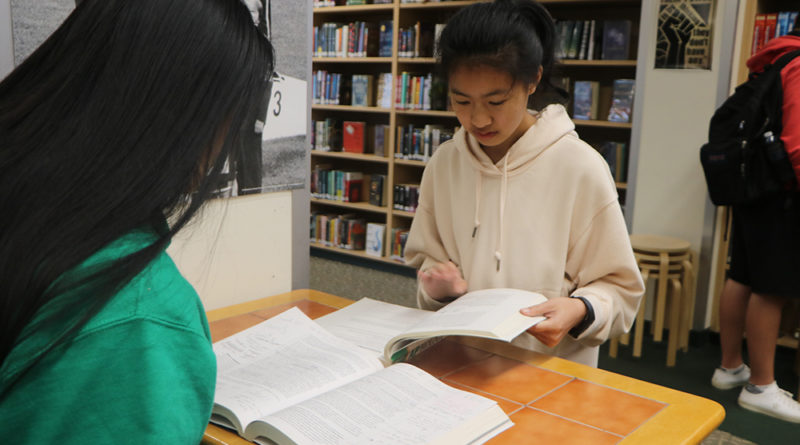How to help students learn English
How does it feel when other students start to take Honors or AP courses but you are trying to talk to your teachers with Google Translate?
Without any capabilities in English, I arrived in the U.S. four and a half years ago. School is difficult for English Learners. You might not be able to finish your homework, even in the extremely slow paced ELD courses. Of course, the biggest obstacle is outside of the classroom. Social interactions are awkward for an ELD student. On Memorial Day when I was in eighth grade, I spent five minutes with the Safeway cashier. He was simply asking me for my membership card, and I only asked more questions. It might be worse for other ELD students. It is normal to be unable to tell others your birthday, and it is abnormal to say a complete sentence within seconds. We’ve all been speechless and in clumsy situations. That’s how difficult it is to learn a second language.
After two years, when I was a sophomore, I completed the ELD programs. It usually takes three or more years for immigrant students to finish ELD, and some people I know finished the program within ten months. How should the school act in order to improve the ELD students’ English ability quickly?
In my opinion, the ELD teachers should convey to their students a feeling of “why should you learn English,” rather than “you must learn English.” In other words, teachers could demonstrate the advantages of decent English proficiency to the different ELD students based on their different fields of interest.
Some students don’t speak English but are down to play a certain musical instrument; an ELD instructor could encourage them to join the school music team or dance club, therefore gaining more experiences by interacting with local students.
Some students don’t speak English but love mathematics or coding; an ELD instructor could encourage them to improve their collaboration skills by participating in the school First Robotic Team with other future engineers. If an ELD student loves NBA, the student could join the school basketball team, and an ELD student who loves nature could join the gardening club. Therefore, a positive externality will apply on the immigrant students: the more extracurricular activities ELD students are involved in, the more likely they will be to learn English more quickly. Instructors could try to approach the new students, learn their hobbies, and urge them to join the club or team at CVHS corresponding to the students’ interests by giving them some participation points. I believe they would be willing to do the things that they’d like to do.
Some people might doubt my suggestion, but I have to tell you that the power of pursuing a dream is powerful. I am a living example: I learned English through playing video games. If I want to be a pro at a certain game, I must understand its language, otherwise I will be poor at it. As a result, I learned all kinds of object names from Minecraft, and I simply improved my listening and speaking skills by voice chatting with others on Fortnight.
Learn by doing is an immortal principle.

